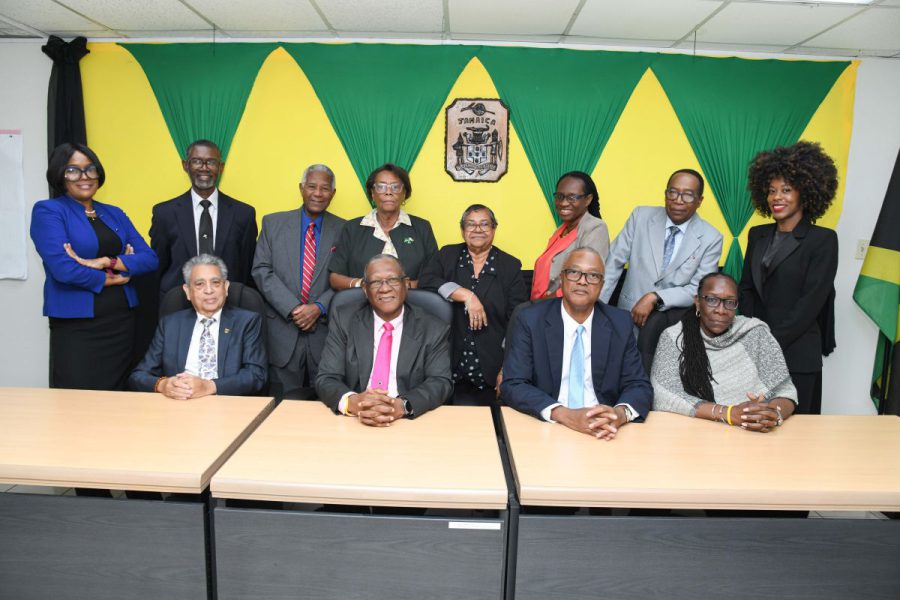
The Ministry’s Work Permit Unit is responsible for the administration of the Foreign Nationals and Commonwealth Citizens (Employment) Act and the Caribbean Community Free Movement of Skilled Persons Act.
Work Permit Defined
A Work Permit is an official document (card), issued to expatriates, granting them authorization to work in Jamaica for a designated period, under the specific terms and conditions outlined in the Work Permit letter.
The Work Permit card bears a unique number and the photograph of the person to whom the permit has been issued.
Applications for Work Permits
An individual seeking to obtain a Work Permit is required to make an application to this Ministry through his/her prospective employer, sponsor, contractor, or through legal representation.
Investors must apply to the Ministry through the Jamaica Promotions Corporation (JAMPRO).
The Foreign Nationals and Commonwealth Citizens (Employment) Exemptions Regulations 1964 lists the categories of persons who are eligible to receive exemptions from the requirements for Work Permits.
Eligibility for Work Permit or Exemption
The Foreign Nationals and Commonwealth Citizens (Employment) Exemptions Regulations 1964 lists the various categories of employment that are eligible to receive exemptions from the requirement for Work Permits. View the regulation page here.
The request for an exemption should be made by completing the Work Permit/Exemption Application. Which should be accompanied by a letter from the employing organization or sponsor, addressed to the Permanent Secretary, Ministry of Labour and Social Security. The letter should provide details such as the full name and nationality of the applicant, the period for which the exemption is being sought, and an explanation of the duties to be performed by the applicant. Further details are provided on the Work Permit/Exemption Application Instruction Sheet.
Persons who are eligible for a Marriage Exemption Certificate (MEC) under Part I of the Schedule of the Foreign Nationals and Commonwealth Citizens (Employment) Exemptions Regulations, i.e., in view of their marriage to Jamaican nationals, must attend the Ministry of Labour, 1F North Street, Kingston. Either parties or a suitable representative of their choice may submit the MEC application Form however, both spouses must be present to obtain the certificate. See checklist for guidance. The MEC exempts eligible foreign nationals from requiring a work permit to be employed in Jamaica. This exemption applies strictly to individuals whose marital status qualifies them under the regulations.
Part I of the Schedule of the Foreign Nationals and Commonwealth Citizens (Employment) Exemptions Regulations exempts qualified foreign nationals working in Jamaica from the requirement for Work Permits, based on their marriage to Jamaicans. These persons must apply for a Marriage Exemption Certificate (MEC). Applicants must visit the Ministry of Labour at 1F North Street, Kingston. Either spouse or a designated representative may submit the MEC application, however both spouses must be present to receive the certificate. Kindly refer to the checklist for guidance.
Procedure for obtaining a Marriage Exemption by Foreign Nationals married to Jamaican Spouse
Applicants for Marriage Exemptions are required to pay a processing fee of Seventeen Thousand, Two Hundred and Fifty Jamaican Dollars (JA$17,250.00) at any branch of the National Commercial Bank, using the Ministry’s Payment Voucher. Vouchers may be obtained from the Work Permit Unit or any Regional/Parish Office island-wide. Alternatively payments may be made electronically to the Ministry’s account.
The application must be submitted to the Ministry of Labour and Social Security, 1F North Street, Kingston, along with the following required supporting documents:
- Payment Receipt
- Birth Certificate or Naturalization Certificate of the Jamaican spouse (both original and certified copy).
- Marriage Certificate (both original and certified copy).
- Passports of both husband and wife. In the case of the Jamaican spouse, a valid national ID, or driver’s license may be used (certified copies).
- Affidavit written and signed by both husband and wife, stating that they have shared a common matrimonial home in Jamaica for six months or more. This must be certified by a Justice of the Peace.
- Two certified passport-sized photographs of the expatriate (non-Jamaican) spouse.
- One certified passport-sized photograph of the Jamaican spouse.
- A copy of the Decree Absolute, if either or both spouses have previously been divorced.
- A copy of the Death Certificate (original and certified copy), if a former spouse has died.
- Original police report. For new applicants (expatriate), the police report must be from the expatriate’s home country.
IMPORTANT NOTES
- Expatriate males are issued Exemption Certificates valid for three (3) years.
- Expatriate females are issued letters of Exemption valid for the duration of their marriage to the Jamaican spouses and widows of citizens of Jamaica.
- The marriage must be six (6) months old or more before attending the Ministry for processing.
- Processing and delivery may take ten (10) business days, provided that the Application Form has been properly completed, all required documents submitted, and there is no need for further checks.
- The Exemption Certificate, along with the passport of the non-Jamaican spouse, must be taken to the Immigration Authorities for the passport to be endorsed.
RENEWAL OF MARRIAGE EXEMPTION CERTIFICATION
Either party or a suitable representative should submit the following documents to the Ministry at least one month before the expiry date:
- The previously issued Exemption Certificate.
- Both passports. (Please refer to the note above regarding valid forms of identification for the Jamaican spouse.)
- An affidavit duly signed by both parties, certified by a Justice of the Peace or Notary Public.
- The male applicant is required to provide a local police report.
NB: PLEASE REVIEW THE ABOVE CAREFULLY AND ENSURE COMPLIANCE.
Application Form Requirements

It is important that all applicants for Work Permits and Work Permit Exemptions in Jamaica take careful note of the following instructions.
- The Application Form and Cover Letter justifying the need for employment of an expatriate must be submitted along with the required supporting documents.
- You should complete the application thoroughly, writing in ink and using block capitals. It is an offence punishable by law to supply any false or misleading statement or false documents in support of your application for a Work Permit or Work Permit Exemption.
- Part I of the Application Form (questions 1-29) should be completed by the applicant. The prospective employer of the applicant should complete Part II (questions 30-51) of this Form. Employers should note carefully and provide the information required in questions 43-50 concerning the steps taken to recruit a Jamaican national for the job to be undertaken by the applicant.
- Part III of this Form is strictly for Official Use Only. Applicants should not write in or make any marks in this section. Failure to comply with this instruction could invalidate the application.
- An Applicant seeking a Work Permit on the basis of being self-employed should complete Parts I and II of the Application Form.
- The Application Form should be signed and dated in the spaces provided at Questions 29 and 51. Applications that are not properly signed and dated will not be processed.
- The applicant is required to mark the letters N/A in response to any questions on the Application Form that are not relevant to him/her.
- A non-refundable fee is payable for processing the application. All Work Permit fees are non-transferable and non-refundable.
- Where approval has been granted for a Work Permit, prospective employer of the applicant will be notified. A Work Permit Fee is payable by the employer on receiving the Notice of Approval. The Work Permit will not be issued without evidence of the payment of the required fee.
- Payment vouchers are available at the Work Permit Unit of the Ministry of Labour and Social Security, IF North Street, Kingston and at any of the Ministry’s Parish Offices island wide.
- Payments are to be made at any branch of the National Commercial Bank (NCB).
NB: Work Permits are not transferable. Where a person to whom a Work Permit has been granted wishes to withdraw his/her services from one employer and take up employment with another before the expiration of the current Work Permit, a new application must be made. The application must be supported by written evidence, indicating that his/her previous employment is terminated.
Documents to be submitted with Applications
NB. Applications for Work Permits or Work Permit Exemptions in excess of thirty (30) days should be submitted along with the following supporting documents:
- A Cover Letter outlining the nature and duration of the work to be undertaken.
- Where a Work Permit is being sought to start a new business, details of investment proposal(s) should be stated and documentary proof of proposed investment(s) submitted (Bank statements, rental/lease agreements, invoices etc.).
- Proof of Qualification: Certified copies of proof of academic or professional qualifications or letters of accreditation.
- A letter of recommendation or written reference from the previous employer of the applicant or evidence of the business/commercial/professional activity of the applicant abroad.
- Proof of Registration with Professional/Regulatory Body: The following Professions/Occupations/Trades are required to register with the listed Professional/Regulatory Body and attach a certified copy of the certification to the application:
Accountants (Public/Chartered)
- Public Accountancy Board
- Practicing Certificate
Architects
- Architects Registration Board
- Certificate of Registration
Attorneys-at-Law
- General Legal Council
- Practicing Certificate
Barbers/Beauty Therapists/Cosmetologists/Hair Dressers
- Local Board of Health for respective Parish Council
- Practicing Certificate
Dentists
- Dental Council of Jamaica
- Practicing Certificate
Dieticians
- Council for Professions Supplementary to Medicine
- Practicing certificate
Engineers
- Professional Engineers Registration Board
- Practicing Certificate
Land Surveyors
- Land Surveyors Board
- Practicing Certificate
Medical Practitioners
- Medical Council of Jamaica
- Practicing certificate
Medical Laboratory Technicians
- Council for Professions Supplementary to Medicine
- Certificate of Registration
Nurses/Midwives
- Nursing Council of Jamaica
- Certificate of Registration
Occupational Therapists
- Council for Professions Supplementary to Medicine
- Certificate of Registration
Opticians & Optometry Professionals
- Registrar General
- Letter of registration or current gazette containing applicants
Pharmacists
- Pharmacy Council of Jamaica
- Certificate of Registration
Physiotherapists
- Council for Professions Supplementary to Medicine
- Certificate of Registration
Radiographers
- Council for Professions Supplementary to Medicine
- Certificate of Registration
Real Estate Dealers/Real Estate Salesmen
- Real Estate Board
- Certificate of Registration
Speech Therapists
- Council of Professions Supplementary to Medicine
- Certificate of Registration
Veterinary Surgeons
- Veterinary Council of Jamaica
- Certificate of Registration
Fisher folk
- National Fisheries Authority
Mining and Quarrying prospective employees (Foreign Nationals)
- To obtain no objection letter from the Mines and Geology Division,
- Ministry of Agriculture, Fisheries and Mining
Educators/Teachers
- Letter of Good Standing
- Ministry of Education
NB: In cases where any of the above named documents are prepared in a language other than English, a certified English translation of the relevant document should be supplied.
A Justice of the Peace or a Notary Public with a valid Commission should certify the documents. Authorized members of staff of the Ministry of Labour and Social Security may certify copies of the documents upon presentation of the original documents.
- A resume outlining the professional or business experience of the applicant.
- A Police Record:
- For new applications: The record should be issued by the appropriate Security Authority in the country of the domicile of the applicant.
- For renewals: The record should be issued by the relevant section of the Ministry of National Security Jamaica. Please note that the Police Record submitted should bear a date of investigation not more than one year prior to the date of submission to this Ministry, this means that the Police Record should be valid at the time of submission.
- Proof of Business Registration
- Certified copy of Business Registration Certificate for unincorporated enterprises.
- Certified copy of Certificate of Incorporation and the Memorandum of Association for duly registered companies. Articles of Association are not required.
- Tax Compliance Certificate should be submitted where an applicant is self-employed or where an enterprise is in operation for at least a year, or the applicant is applying for renewal of a Work Permit.
- Certified copies of pages from the passport of the applicant showing
- proof of identity
- passport number
- date of issue and expiry
- landing status in Jamaica and
- relevant visas (where applicable).
- Two (2) photographs in the case of a Work Permit and one (1) in the case of a Work Permit Exemption. (See Instruction Below)
NB. Applications for Renewal of Work Permits or Work Permit Exemptions in excess of thirty (30) days should be accompanied by the following:
- Certified copies of current documents. Where these documents have expired since the last application
- copies of salary statement for the last three (3) months
- cover letter as outlined above.
- Applications for Renewal of Work Permits should be submitted with the following
- the last three (3) SO1
- the current SO2 forms
- certified copy of the staff register for the company
- Photographs: Photographs submitted with an application become the property of the Government of Jamaica. Each applicant is required to submit his/her photographs enclosed in and envelope, which should not be stapled.
- Photographs should be professionally produced and taken not more than six (6) months prior to application, and must meet the following specifications:
- Taken in colour with a flat finish against a plain background. The applicant should not wear white or extremely light colours when taking the photograph
- Photographs should provide a full frontal view of the head, neck and the top of the shoulders with ears clearly visible.
- There should be no reflection from eyeglasses or background shadows that may obscure the image.
- The size of the face should be 25mm to 35mm, from the chin to the top of the head.
- The applicant should not wear any head covering while taking the photograph except where required for religious reasons.
Caribbean Single Market Economy (CSME)
The Work Permit Unit administers the CARICOM (Free Movement) Skilled Persons Act which came into effect in July 1997.
The Act was designed to facilitate the free movement of Caribbean professionals within the Caribbean region. There are at present, 13 member states within CARICOM, the majority have begun the implementation of this inter-regional agreement.
A document called “A Certificate of Recognition of Caribbean Community Skilled Person” is issued to persons who qualify under the Act. Each CARICOM member state is required to issue this certification to qualified skilled persons entering their shores to engage in any form of employment.
The CARICOM Free Movement of Skilled Persons agreement is being implemented on a phased basis where other categories of qualifying skills are to be included. To date, the provision applies to the following categories:
- University Graduates
- Artistes, Musicians, Sportspersons
- Media Workers
- Nurses
- Teachers
- Artisans with a Caribbean Vocational Qualification (CVQ)
- Holders of Associate Degrees or comparable qualification
- Domestic Workers with CARICOM Vocational Qualification or National Vocational Qualification in Domestic Work, (The qualification must be accompanied by a letter, in a sealed envelope, from the institution which awarded the qualification(s), to verify the qualification authenticity), or two (2) letters from persons whom the domestic worker provided services as a domestic worker
- Agricultural Workers: CARICOM Vocational Qualification or National Vocational Qualification (The qualification must be accompanied by a letter, in a sealed envelope, from the institution which awarded the qualification(s), to verify the qualification authenticity), or a letter from the Ministry of Agriculture and Fisheries (RADA/NFA)
- Private Security Officers: Relevant qualification in the field, such as a Caribbean Vocational Qualification or a professional license, together with a letter from the relevant body responsible for maintaining the register/roster of private security officers or Estate/Island/District Constable or equivalent in the Member State in which the Community national is registered as a private security officer, have been included under the Act.
-
- Completed Application Form (obtainable from the Ministry of Labour‘s Office.
- A certified copy of University Degree, Associate Degree, Diploma, Professional qualifications (ACCA, AAT etc.) Certificate NCTVET – Level 2 (HEART/TRUST NTA) for Artisans and Domestic workers ONLY
–Note: All applicants are required to present a letter in a sealed envelope from the institution which the qualification (s) was awarded to verify that said qualification is authentic. (NOT A TRANSCRIPT)
-
- Certified copy of passport page (showing bio-data information and expiry date).
- A certified copy of Birth Certificate/Naturalization document
- A deed poll/or other documents to support change of name, if any.
- One (1) certified passport size photograph
- Police Report from country of residence for the past 3 yrs.
NB. Qualifications obtained from Universities other than those specified in the Act (University of the West Indies, University of Guyana, University of Technology, MICO University and University of Suriname) must be assessed for equivalency by the University Council of Jamaica, 6b Oxford Road, Kingston 10.
These fees are non-refundable:
| Application Fee | $2,000.00 |
| Cost of Certificate | $8,000.00 |
| Each Dependent | $2,000.00 |
| Replacement Fee | $3,000.00 |
| Amendment Fee | $2,000.00 |
- Only graduates with degrees, and whose citizenship are of designated CARICOM Countries who are signatory to the agreement are eligible for CARICOM Certificates of Recognition.
- Some professionals, for example; Engineers, Doctors, Veterinarians, Nurses who are desirous of working in Jamaica are required to register with the relevant authorities listed below:
Professional Engineers Registration Board
2 Winchester Road,
Kingston 10
Tel: 876-754-6275/876-929-8820
The Medical Council of Jamaica
2 King Street,
Kingston
Tel: 976-922-3116
Ministry of Agriculture – Veterinary Division
Marcus Garvey Drive,
Kingston 13
Tel: 876-924-8077/8079
The Nursing Council of Jamaica
25 Dominica Drive,
Kingston 5
Tel: 876-926-6042/876-929-5118
Pharmacy Council
41 Lady Musgrave Road,
Kingston 10
Tel: 876-978-1000
Supplementary Council to Medicine
2 King Street, Kingston
Tel: 876-922-3116
Ministry of Agriculture – Fisheries Division
Marcus Garvey Drive,
Kingston 13
Tel: 876-937-6726
Jamaica Racing Commission
8 Winchester Road,
Kingston 10
Tel: 876-926-2718/2724/2727
Public Accountancy Board c/o Ministry of Finance & Planning
Block G, 1st Floor
30 National Heroes Circle
Kingston 4
Tel: 876-922-8600
Betting, Gaming & Lotteries Commission
Bldg 2,
17 Ruthven Road Kingston 10
Tel: 876-960-1549/7279
Ministry of Commerce, Science & Technology
36 Trafalgar Road,
Kingston
These registration processes may attract a fee (the relevant authorities will advise).
- Under the FNACC Act, it is stated “A Foreign National or Commonwealth Citizen” shall not engage in any occupation unless there is in force a valid work permit which is issued in relation to his/her current employment terms and specifications (see Section 3 of the Act).
- Any employer who employs an expatriate who does not have in force a valid work permit in relation to that employment is liable to imprisonment or fines. (see Section 6 of the FNCC Act). Every work permit should be kept by the person to whom it is issued. (see Section 9 of the act).
- Non-Commonwealth Citizens are required to obtain a work visa, BEFORE entering the Island to engage in employment activity. The Passport, Immigration and Citizenship Agency (PICA), located at 25 Constant Spring Road, Kingston 10 should be contacted on matters relating to the granting of a visa.

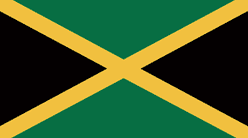

 20
20  22
22 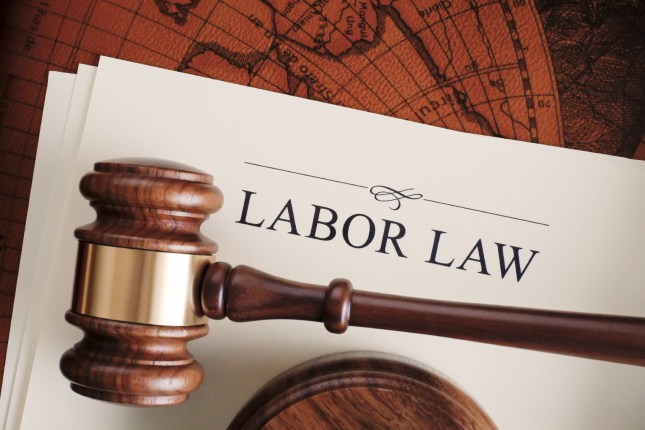 21
21 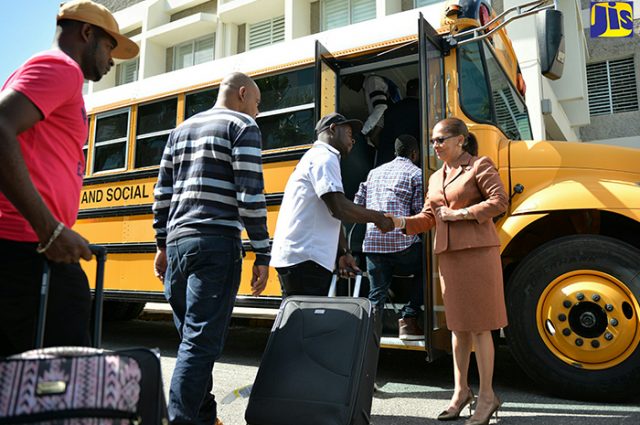 21
21  21
21 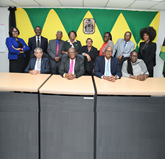 21
21 